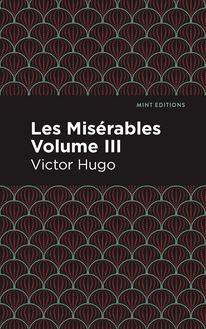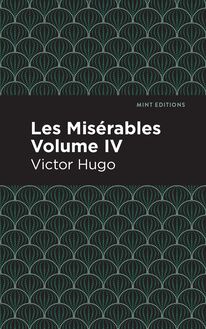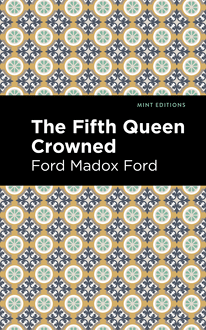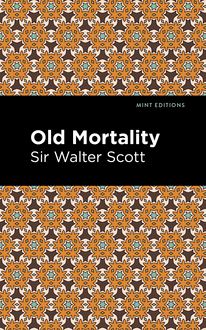-
 Univers
Univers
-
 Ebooks
Ebooks
-
 Livres audio
Livres audio
-
 Presse
Presse
-
 Podcasts
Podcasts
-
 BD
BD
-
 Documents
Documents
-
- Cours
- Révisions
- Ressources pédagogiques
- Sciences de l’éducation
- Manuels scolaires
- Langues
- Travaux de classe
- Annales de BEP
- Etudes supérieures
- Maternelle et primaire
- Fiches de lecture
- Orientation scolaire
- Méthodologie
- Corrigés de devoir
- Annales d’examens et concours
- Annales du bac
- Annales du brevet
- Rapports de stage
La lecture à portée de main
Vous pourrez modifier la taille du texte de cet ouvrage
Découvre YouScribe en t'inscrivant gratuitement
Je m'inscrisDécouvre YouScribe en t'inscrivant gratuitement
Je m'inscrisEn savoir plus
Vous pourrez modifier la taille du texte de cet ouvrage
En savoir plus

Description
Marius and Cosette’s union is strained by Valjean’s sudden plan to leave the country and the growing tension between the disillusioned students and national government. The couple struggles to navigate the unstable social and political climate.
Following a close call with Inspector Javert, Jean Valjean plans to leave France for England. He informs Cosette, who is heartbroken, as she’s still in love with Marius. The young man attempts to take her hand in marriage but is sidetracked by social conventions that require his family’s blessing. Marius is also pulled into a student revolt which has taken over the city’s streets. A revolution has begun, and everyone is forced to choose a side.
Les Misérables Volume Four is an action-heavy entry in Victor Hugo’s enduring story. Characters and ideals collide during a volatile exchange that shifts the direction of the entire series. This is one part of a captivating tale that’s been adapted multiple times for stage, television and film. The most notable being the 2012 Oscar-winning production from director, Tom Hooper.
With an eye-catching new cover, and professionally typeset manuscript, this edition of Les Misérables Volume Four: The Idyll in the Rue Plumet and the Epic in the Rue St. Denis is both modern and readable.
Sujets
Informations
| Publié par | Mint Editions |
| Date de parution | 24 mars 2021 |
| Nombre de lectures | 0 |
| EAN13 | 9781513284811 |
| Langue | English |
| Poids de l'ouvrage | 3 Mo |
Informations légales : prix de location à la page 0,0500€. Cette information est donnée uniquement à titre indicatif conformément à la législation en vigueur.
Extrait
Les Miserables
Volume IV: The Idyll in the Rue Plumet and the Epic in the Rue St. Denis
Victor Hugo
Les Miserables was first published in 1862.
This edition published by Mint Editions 2020.
ISBN 9781513279794 | E-ISBN 9781513284811
Published by Mint Editions®
minteditionbooks.com
Publishing Director: Jennifer Newens
Design & Production: Rachel Lopez Metzger
Project Manager: Micaela Clark
Translated by: Isabel F. Hapgood
Typesetting: Westchester Publishing Services
More in This Series:
Les Miserables Volume I: Fantine
Les Miserables Volume II: Cosette
Les Miserables Volume III: Marius
Les Miserables Volume V: Jean Valjean
C ONTENTS B OOK F IRST . A F EW P AGES OF H ISTORY I. W ELL C UT II. B ADLY S EWED III. L OUIS P HILIPPE IV. C RACKS B ENEATH THE F OUNDATION V. F ACTS W HENCE H ISTORY S PRINGS AND W HICH H ISTORY I GNORES VI. E NJOLRAS AND H IS L IEUTENANTS B OOK S ECOND . É PONINE I. T HE L ARK ’ S M EADOW II. E MBRYONIC F ORMATION OF C RIMES IN THE I NCUBATION OF P RISONS III. A PPARITION TO F ATHER M ABEUF IV. A N A PPARITION TO M ARIUS B OOK T HIRD . T HE H OUSE IN THE R UE P LUMET I. T HE H OUSE WITH A S ECRET II. J EAN V ALJEAN AS A N ATIONAL G UARD III. F OLIIS AC F RONDIBUS IV. C HANGE OF G ATE V. T HE R OSE P ERCEIVES THAT IT IS AN E NGINE OF W AR VI. T HE B ATTLE B EGUN VII. T O O NE S ADNESS O PPOSE A S ADNESS AND A H ALF VIII. T HE C HAIN -G ANG B OOK F OURTH . S UCCOR FROM B ELOW M AY T URN O UT TO BE S UCCOR FROM ON H IGH I. A W OUND W ITHOUT , H EALING W ITHIN II. M OTHER P LUTARQUE F INDS N O D IFFICULTY IN E XPLAINING A P HENOMENON B OOK F IFTH . T HE E ND OF W HICH D OES N OT R ESEMBLE THE B EGINNING I. S OLITUDE AND THE B ARRACKS C OMBINED II. C OSETTE ’ S A PPREHENSIONS III. E NRICHED WITH C OMMENTARIES BY T OUSSAINT IV. A H EART B ENEATH A S TONE V. C OSETTE A FTER THE L ETTER VI. O LD P EOPLE ARE M ADE TO G O O UT O PPORTUNELY B OOK S IXTH . L ITTLE G AVROCHE I. T HE M ALICIOUS P LAYFULNESS OF THE W IND II. I N W HICH L ITTLE G AVROCHE E XTRACTS P ROFIT FROM N APOLEON THE G REAT III. T HE V ICISSITUDES OF F LIGHT B OOK S EVENTH . S LANG I. O RIGIN II. R OOTS III. S LANG W HICH W EEPS AND S LANG W HICH L AUGHS IV. T HE T WO D UTIES : T O W ATCH AND T O H OPE B OOK E IGHTH . E NCHANTMENTS AND D ESOLATIONS I. F ULL L IGHT II. T HE B EWILDERMENT OF P ERFECT H APPINESS III. T HE B EGINNING OF S HADOW IV. A C AB R UNS IN E NGLISH AND B ARKS IN S LANG V. T HINGS OF THE N IGHT VI. M ARIUS B ECOMES P RACTICAL O NCE M ORE TO THE E XTENT OF G IVING C OSETTE H IS A DDRESS VII. T HE O LD H EART AND THE Y OUNG H EART IN THE P RESENCE OF E ACH O THER B OOK N INTH . W HITHER ARE T HEY G OING ? I. J EAN V ALJEAN II. M ARIUS III. M. M ABEUF B OOK T ENTH . T HE 5 TH OF J UNE , 1832 I. T HE S URFACE OF THE Q UESTION II. T HE R OOT OF THE M ATTER III. A B URIAL ; A N O CCASION TO B E B ORN A GAIN IV. T HE E BULLITIONS OF F ORMER D AYS V. O RIGINALITY OF P ARIS B OOK E LEVENTH . T HE A TOM F RATERNIZES WITH THE H URRICANE I. S OME E XPLANATIONS WITH R EGARD TO THE O RIGIN OF G AVROCHE ’ S P OETRY . T HE I NFLUENCE OF AN A CADEMICIAN ON T HIS P OETRY II. G AVROCHE ON THE M ARCH III. J UST I NDIGNATION OF A H AIR -D RESSER IV. T HE C HILD IS A MAZED AT THE O LD M AN V. T HE O LD M AN VI. R ECRUITS B OOK T WELFTH . C ORINTHE I. H ISTORY OF C ORINTHE FROM ITS F OUNDATION II. P RELIMINARY G AYETIES III. N IGHT B EGINS TO D ESCEND U PON G RANTAIRE IV. A N A TTEMPT TO C ONSOLE THE W IDOW H UCHELOUP V. P REPARATIONS VI. W AITING VII. T HE M AN R ECRUITED IN THE R UE D ES B ILLETTES VIII. M ANY I NTERROGATION P OINTS WITH R EGARD TO A C ERTAIN L E C ABUC W HOSE N AME M AY N OT H AVE B EEN L E C ABUC B OOK T HIRTEENTH . M ARIUS E NTERS THE S HADOW I. F ROM THE R UE P LUMET TO THE Q UARTIER S AINT -D ENIS II. A N O WL ’ S V IEW OF P ARIS III. T HE E XTREME E DGE B OOK F OURTEENTH . T HE G RANDEURS OF D ESPAIR I. T HE F LAG : A CT F IRST II. T HE F LAG : A CT S ECOND III. G AVROCHE W OULD H AVE D ONE B ETTER TO A CCEPT E NJOLRAS ’ C ARBINE IV. T HE B ARREL OF P OWDER V. E ND OF THE V ERSES OF J EAN P ROUVAIRE VI. T HE A GONY OF D EATH A FTER THE A GONY OF L IFE VII. G AVROCHE AS A P ROFOUND C ALCULATOR OF D ISTANCES B OOK F IFTEENTH . T HE R UE DE L’ HOMME A RMÉ I. A D RINKER IS A B ABBLER II. T HE S TREET U RCHIN AN E NEMY OF L IGHT III. W HILE C OSETTE AND T OUSSAINT ARE A SLEEP IV. G AVROCHE ’ S E XCESS OF Z EAL
BOOK FIRST
A FEW PAGES OF HISTORY
I
W ELL C UT
1831 and 1832, the two years which are immediately connected with the Revolution of July, form one of the most peculiar and striking moments of history. These two years rise like two mountains midway between those which precede and those which follow them. They have a revolutionary grandeur. Precipices are to be distinguished there. The social masses, the very assizes of civilization, the solid group of superposed and adhering interests, the century-old profiles of the ancient French formation, appear and disappear in them every instant, athwart the storm clouds of systems, of passions, and of theories. These appearances and disappearances have been designated as movement and resistance. At intervals, truth, that daylight of the human soul, can be descried shining there.
This remarkable epoch is decidedly circumscribed and is beginning to be sufficiently distant from us to allow of our grasping the principal lines even at the present day.
We shall make the attempt.
The Restoration had been one of those intermediate phases, hard to define, in which there is fatigue, buzzing, murmurs, sleep, tumult, and which are nothing else than the arrival of a great nation at a halting-place.
These epochs are peculiar and mislead the politicians who desire to convert them to profit. In the beginning, the nation asks nothing but repose; it thirsts for but one thing, peace; it has but one ambition, to be small. Which is the translation of remaining tranquil. Of great events, great hazards, great adventures, great men, thank God, we have seen enough, we have them heaped higher than our heads. We would exchange C æ sar for Prusias, and Napoleon for the King of Yvetot. “What a good little king was he!” We have marched since daybreak, we have reached the evening of a long and toilsome day; we have made our first change with Mirabeau, the second with Robespierre, the third with Bonaparte; we are worn out. Each one demands a bed.
Devotion which is weary, heroism which has grown old, ambitions which are sated, fortunes which are made, seek, demand, implore, solicit, what? A shelter. They have it. They take possession of peace, of tranquillity, of leisure; behold, they are content. But, at the same time certain facts arise, compel recognition, and knock at the door in their turn. These facts are the products of revolutions and wars, they are, they exist, they have the right to install themselves in society, and they do install themselves therein; and most of the time, facts are the stewards of the household and fouriers who do nothing but prepare lodgings for principles.
This, then, is what appears to philosophical politicians:—
At the same time that weary men demand repose, accomplished facts demand guarantees. Guarantees are the same to facts that repose is to men.
This is what England demanded of the Stuarts after the Protector; this is what France demanded of the Bourbons after the Empire.
These guarantees are a necessity of the times. They must be accorded. Princes “grant” them, but in reality, it is the force of things which gives them. A profound truth, and one useful to know, which the Stuarts did not suspect in 1662 and which the Bourbons did not even obtain a glimpse of in 1814.
The predestined family, which returned to France when Napoleon fell, had the fatal simplicity to believe that it was itself which bestowed, and that what it had bestowed it could take back again; that the House of Bourbon possessed the right divine, that France possessed nothing, and that the political right conceded in the charter of Louis XVIII was merely a branch of the right divine, was detached by the House of Bourbon and graciously given to the people until such day as it should please the King to reassume it. Still, the House of Bourbon should have felt, from the displeasure created by the gift, that it did not come from it.
This house was churlish to the nineteenth century. It put on an ill-tempered look at every development of the nation. To make use of a trivial word, that is to say, of a popular and a true word, it looked glum. The people saw this.
It thought it possessed strength because the Empire had been carried away before it like a theatrical stage-setting. It did not perceive that it had, itself, been brought in in the same fashion. It did not perceive that it also lay in that hand which had removed Napoleon.
It thought that it had roots, because it was the past. It was mistaken; it formed a part of the past, but the whole past was France. The roots of French society were not fixed in the Bourbons, but in the nations. These obscure and lively roots constituted, not the right of a family, but the history of a people. They were everywhere, except under the throne.
The House of Bourbon was to France the illustrious and bleeding knot in her history, but was no longer the principal element of her destiny, and the necessary base of her politics. She could get along without the Bourbons; she had done without them for two and twenty years; there had been a break of continuity; they did not suspect the fact. And how should they have suspected it, they who fancied that Louis XVII reigned on the 9th of Thermidor, and that Louis XVIII was reigning at the battle of Marengo? Never, since the origin of history, had princes been so blind in the presence of facts and the portion of divin
-
 Univers
Univers
-
 Ebooks
Ebooks
-
 Livres audio
Livres audio
-
 Presse
Presse
-
 Podcasts
Podcasts
-
 BD
BD
-
 Documents
Documents
-
Jeunesse
-
Littérature
-
Ressources professionnelles
-
Santé et bien-être
-
Savoirs
-
Education
-
Loisirs et hobbies
-
Art, musique et cinéma
-
Actualité et débat de société
-
Jeunesse
-
Littérature
-
Ressources professionnelles
-
Santé et bien-être
-
Savoirs
-
Education
-
Loisirs et hobbies
-
Art, musique et cinéma
-
Actualité et débat de société
-
Actualités
-
Lifestyle
-
Presse jeunesse
-
Presse professionnelle
-
Pratique
-
Presse sportive
-
Presse internationale
-
Culture & Médias
-
Action et Aventures
-
Science-fiction et Fantasy
-
Société
-
Jeunesse
-
Littérature
-
Ressources professionnelles
-
Santé et bien-être
-
Savoirs
-
Education
-
Loisirs et hobbies
-
Art, musique et cinéma
-
Actualité et débat de société
- Cours
- Révisions
- Ressources pédagogiques
- Sciences de l’éducation
- Manuels scolaires
- Langues
- Travaux de classe
- Annales de BEP
- Etudes supérieures
- Maternelle et primaire
- Fiches de lecture
- Orientation scolaire
- Méthodologie
- Corrigés de devoir
- Annales d’examens et concours
- Annales du bac
- Annales du brevet
- Rapports de stage




















